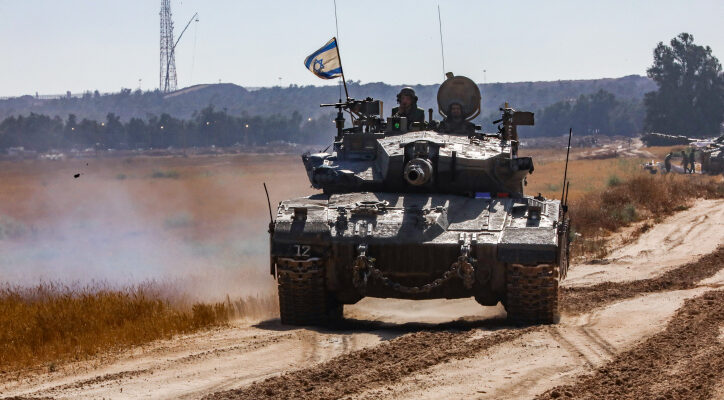“The Israelis have updated their plans. They’ve incorporated many of the concerns that we have expressed,” said Biden administration official.
By World Israel News Staff
The Biden administration has signaled its approval of a revised Israeli military operation in Rafah, which is significantly smaller in scope than the original plan.
In recent weeks, Israel has evacuated nearly one million Gazan civilians from Rafah, which is widely seen as the last major stronghold for the Hamas terror group in the Strip.
Washington had repeatedly asserted that it was Israel’s duty to evacuate non-combatants from the city before beginning its operation.
“It’s fair to say, I think the Israelis have updated their plans. They’ve incorporated many of the concerns that we have expressed,” a senior Biden administration told media outlets, speaking anonymously.
“I have to say after coming out of Israel these past couple of days… it is pretty clear that the Israelis are taking those concerns seriously.”
Referencing a recent visit by State Department officials to Israel, which including meeting with Prime Minister Benjamin Netanyahu, the official said that Israel’s Rafah incursion is part of “an ongoing discussion, ongoing conversation. It’s been constructive.”
However, the official stressed that the ultimate responsibility for the outcome of the operation would fall on Israel.
“What matters is what actually happens,” the official added. “We don’t greenlight Israeli operations. It’s not our role.”
Earlier in May, Israel began targeted raids in Rafah’s eastern neighborhoods.
The prospect of an Israeli ground invasion of Gaza triggered intense pushback from the Biden administration, as Washington threatened to withhold military aid from Israel should it move forward with the incursion.
Netanyahu was forced to delay the operation several times as tensions with the U.S. continued to worsen.
It’s unlikely that the U.S. will give an official public approval for new Rafah plans, but it appears that the threat of cutting off military supplies is no longer relevant.





